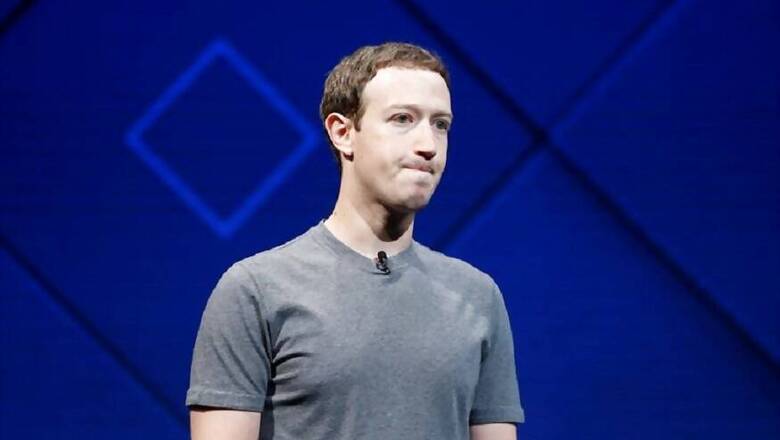
views
Soon after WhatsApp Co-founder Brain Acton suggested Facebook user to delete their Facebook accounts in the wake of the Cambridge Analytica data breach, CEO Mark Zuckerberg in a lengthy post narrated his side of the story.
Zuckerberg has accepted the “breach of trust" and said that he needs to “fix that". “I started Facebook, and at the end of the day I'm responsible for what happens on our platform," wrote Zuckerberg.
While Zuckerberg has promised to “work through this and build a better service" he claims that “the most important actions to prevent" a repeat of this have been already taken.
Also read: Facebook Data Breach: After Germany, Brazil, What Stops India From Summoning Social Media Giant?
So, what are the step announced by Mark Zuckerberg?
- We will investigate all apps that had access to large amounts of information before we changed our platform in 2014 to reduce data access, and we will conduct a full audit of any app with suspicious activity. If we find developers that misused personally identifiable information, we will ban them from our platform.
-We will tell people affected by apps that have misused their data. This includes building a way for people to know if their data might have been accessed via “thisisyourdigitallife." Moving forward, if we remove an app for misusing data, we will tell everyone who used it.
-If someone hasn’t used an app within the last three months, we will turn off the app’s access to their information.
-We are changing Login, so that in the next version, we will reduce the data that an app can request without app review to include only name, profile photo and email address. Requesting any other data will require our approval.
-We already show people what apps their accounts are connected to and control what data they’ve permitted those apps to use. Going forward, we’re going to make these choices more prominent and easier to manage.
-We will expand Facebook’s bug bounty program so that people can also report to us if they find misuses of data by app developers.
Also read: Facebook-Cambridge Analytica Scam: Facebook Shares Continue to Fall For The Third Day
Mark Zuckerberg Explains the Cambridge Analytica Case:
In 2013, a Cambridge University researcher named Aleksandr Kogan created a personality quiz app. It was installed by around 300,000 people who shared their data as well as some of their friends' data. Given the way our platform worked at the time this meant Kogan was able to access tens of millions of their friends' data.
In 2014, to prevent abusive apps, we announced that we were changing the entire platform to dramatically limit the data apps could access. Most importantly, apps like Kogan's could no longer ask for data about a person's friends unless their friends had also authorized the app. We also required developers to get approval from us before they could request any sensitive data from people. These actions would prevent any app like Kogan's from being able to access so much data today.
In 2015, we learned from journalists at The Guardian that Kogan had shared data from his app with Cambridge Analytica. It is against our policies for developers to share data without people's consent, so we immediately banned Kogan's app from our platform, and demanded that Kogan and Cambridge Analytica formally certify that they had deleted all improperly acquired data. They provided these certifications.
Last week, we learned from The Guardian, The New York Times and Channel 4 that Cambridge Analytica may not have deleted the data as they had certified. We immediately banned them from using any of our services. Cambridge Analytica claims they have already deleted the data and has agreed to a forensic audit by a firm we hired to confirm this. We're also working with regulators as they investigate what happened.
This was a breach of trust between Kogan, Cambridge Analytica and Facebook. But it was also a breach of trust between Facebook and the people who share their data with us and expect us to protect it. We need to fix that.
WATCH VIDEO: Google Pixel 2 Review | Should You Buy it Now For Rs 42,000?

















Comments
0 comment